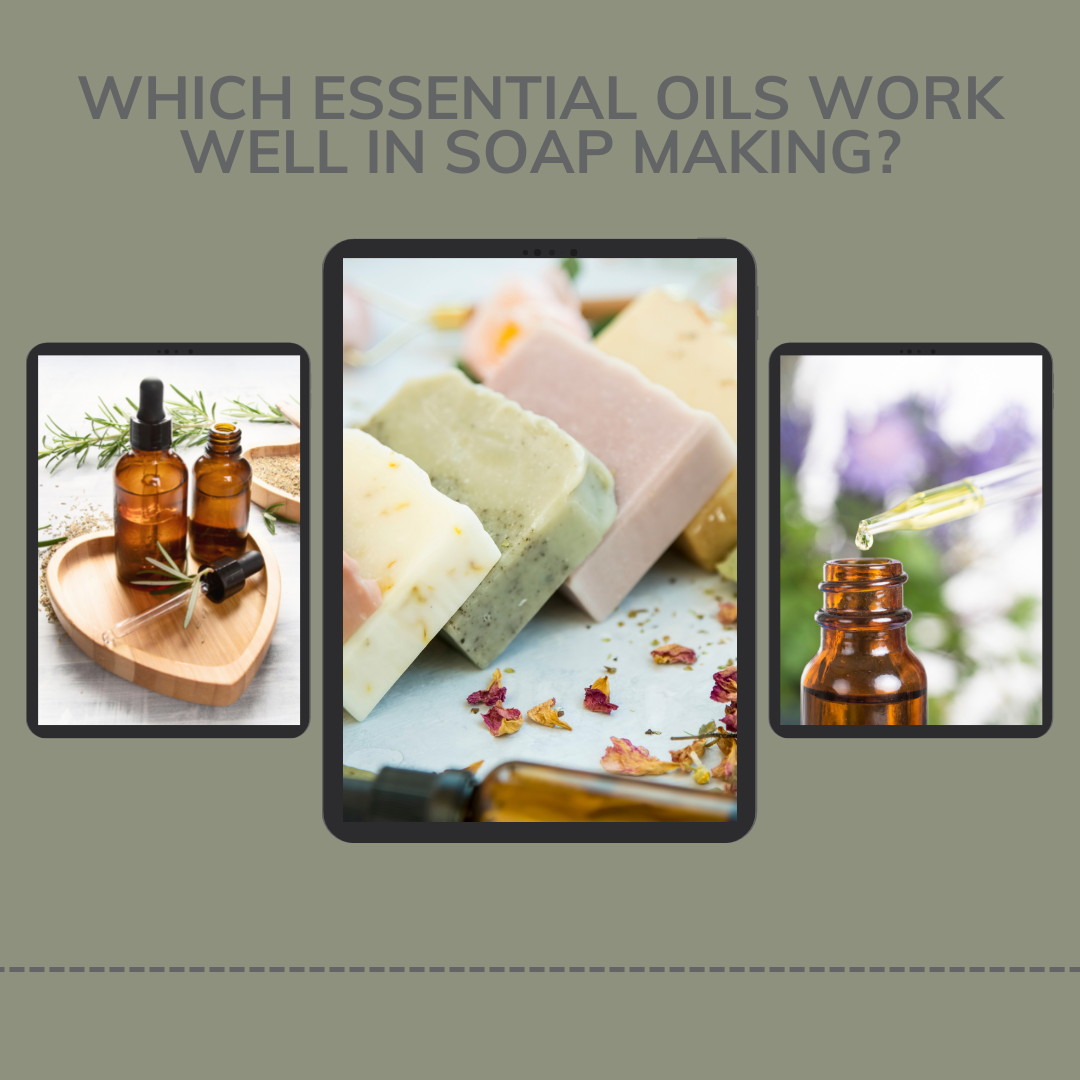Which Essential Oils Work Well In Soap Making

Which essential oils last well in soap?
Why does my lemon soap not smell of anything?
How do I know which essential oils work well in soap?
It is no surprise to know that identifying which essential oil blends stick well in soap, particularly cold process soap, is a topic that I get asked about every week without fail. I think virtually every soap maker out there has experienced the disappointment of a batch that smells of nothing after a 4 to 6 week cure time.
I recently released a free taster course ' 5 Simple Steps to Creating Your Own Bespoke Soap Recipe' to celebrate the launch of The Soap Suite. Part of that course included a download with a list of essential oils, where they sit in the scent scale and what they blend well with in soap. The course had so many sign ups I thought it would be a really great idea to share part of it, albeit a small part and so here is the ever elusive list of essential oils that I like to use in soap and some ideas for blending.
Before reading on however there are some pointers that will stand you in good stead, and if you take nothing else from this blog post, just take the following on board.
Top notes alone are short lived and will fade fast in your soap. Blend with mid and base notes but do not use them alone.
Mid notes can work well alone on the whole, and even better when blended with a base note.
Base notes last the longest, some, not all, can overpower other scents. Ylang Ylang is a good example of this.
TOP NOTES
- Bergamot - sweet/fruity - try with citrus, vetiver or lavender
- Lemon - fresh/crisp - try with lavender, cedarwood
- Orange (sweet) - sweet/fruity - try with geranium, cinnamon leaf, vetiver
- Grapefruit - fresh/citrus - try with eucalyptus, patchouli, black pepper, ylang ylang
- Lime - fresh/citrus - try with citrus, lemongrass, cedarwood
TOP/MID NOTES
- Peppermint - strong/minty - try with lavender, rosemary, eucalyptus, tea tree
- Spearmint - fresh/minty - try with lime, vetiver, clary sage
- Clove - warm/spicy - try with geranium, citrus, lavender, ylang ylang
MID NOTES
- Clary Sage - herbaceous - try with lime, patchouli
- Geranium - sweet/floral - try with sweet orange, clary sage, peppermint
- Juniper Berry - floral - try with rosemary, eucalyptus
- Eucalyptus - strong/fresh - try with tea tree, spearmint, rosemary
- Tea Tree - medicinal/fresh - try with peppermint, lavender, lime
- Rosemary - medicinal/herbaceous - try with lavender, patchouli, lemongrass, peppermint
- Lavender - herbaceous/floral - goes with pretty much everything !!
- Lemongrass citrus/strong - try with lavender, citrus, geranium
BASE NOTES
- Cedarwood - mild/woody - try with lavender, lime, eucalyptus, sandalwood
- Black Pepper - spicy/sharp - try with vetiver, geranium, citrus and lavender
- Cinnamon Leaf - spicy/strong - try with sweet orange, clove (use very sparingly)
- Patchouli - earthy/musky - try with ylang, cinnamon, rosemary, lemongrass
- Vetiver - warm/spicy - try with bergamot, patchouli, sandalwood, citrus
- Ylang Ylang - strong/floral - try with citrus, patchouli, geranium, sandalwood
- Sandalwood - woody/warm - try with citrus, bergamot, lavender, geranium
This is just a guide to whet your appetite and get those creative juices going. Do remember that you can use a mid or base note on it's own so if you love geranium soap, great, make geranium soap and do not feel obliged to add anything extra in to the mix.
Need some more inspiration, grab my 101 Essential Oil Blends For Soap That Last eBook.
I hope you found this useful. Good luck with the blending.
Hi Hayley, I have checked it at my end and it all looks ok, it goes to a Google Drive link where you can download the PDF. If you drop me an email letting me know what it looks like for you when you try and download it (and the email your signed up with) I will dig a bit deeper. My email is hello@thesoapcoach.co.uk Many thanks Keri
I have tried to download the guide but it doesn’t work. Is there an issue with it?
Hi Keri
Thanks, after reading your article, I know more now about essential oils and their different notes. I love citrusy scents, especially bergamot. Can I use it in place of sweet orange in the blends? I had also read about bergamot essential oil and photosensitivity. Will it be a problem if it is used in soap making?
This list is really helpful – thank you for sharing
Leave a comment